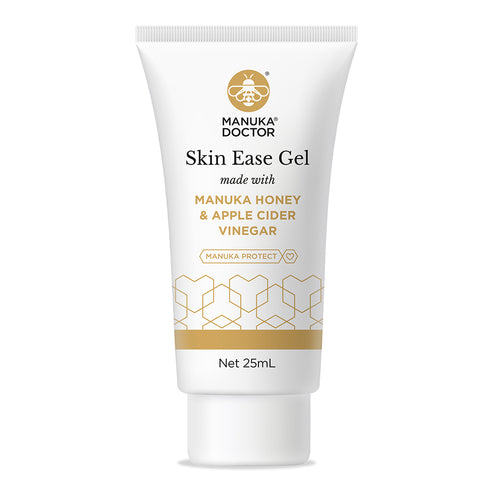“As this week is Dementia Action Week, I thought it important to write a short piece on the topic. Because for the first time ever there has been a sustained drop in dementia diagnosis rates in this country.
As well as the misconception around memory loss just being part of getting old, research from the Alzheimer’s Society found being in denial, and referral times to specialists are also big barriers for those experiencing symptoms to seek a diagnosis.
For this year’s Dementia Action Week, the charity wants to encourage those who might be living with (or close to someone who might be living with) undiagnosed dementia to understand and recognise potential dementia symptoms in order to take the next step.

Understanding the issue
While there is still much we do not yet understand, there are some smalls ways people can reduce their risk of dementia from dietary tweaks to how you can stimulate the brain.
Firstly As we get older, it’s very important to keep your mind active.
You can do this by challenging your brain with puzzles, reading books, learning new skills, or taking art classes.
Keeping the brain sharp doesn't require joining MENSA – as it can be as simple as engaging with loved ones or working out how to text and email family members.
To help protect the brain from toxins, it's also advisable to stay away from cigarette smoke and to limit the body's exposure to alcohol. Because we know that smoking does a lot of harm to the body, including the blood vessels in the brain, and the heart.
If you’re a smoker you’re not only heightening your risk of cancer and heart disease, you’re also increasing your risk of dementia too. Talk to your GP or pharmacist for support on ways to stop smoking as a matter of priority."
As for alcohol consumption, if you are regularly drinking more than 14 units a week, you're at risk of damaging your brain. What's the equivalent of 14 units? It's 10 small (125ml) glasses of wine or seven pints or beer in a week.
Binge drinking is particularly bad because you’re exposing your brain to really toxic levels of alcohol in one sitting. Your brain and liver will thank you for cutting down and spreading your units over the week.
In addition to removing toxins from the diet, you need to make sure it's healthy overall in other ways to help minimise the risk of dementia.
A healthy natural diet
A healthy, balanced diet that contains a variety of different food groups, sensible portions and not too many treats is a really great way of staying healthy. A Mediterranean-style diet is a great way of achieving this.
What we mean by that is a diet that’s full of vegetables, lean meat and natural foods over processed alternatives.
Think more chicken and fish rather than heavier red meats. Try and cook with olive oil, eat fresh fruit for desert and experiment with adding grains or nuts into your food for added nutrition.”
You can read more about Dementia Action Week here on the Alzheimer’s Society’s website.
Memory boosting folic acid, the latest vitamin to prove beneficial in the fight against dementia
It's not just mums-to-be who need to supplement their diet with folic acid, research has now linked it to reducing the risk of a host of health problems, including dementia, and experts say we should all raise our daily intake1.
Folic acid, also known as vitamin B9, is essential for nerve function and the formation of DNA and healthy red blood cells. Several studies have shown a link between low folic acid and a higher risk of Alzheimer’s disease. The beneficial action folic acid has on homocysteine is thought to be behind this link, too, as research has long suggested high levels contribute towards dementia. 2
The Department of Health currently recommends adults should get their 200mcg daily intake through food, while those trying for a baby or pregnant are advised to take a 400mcg supplement, too. Yet figures from the UK’s National Diet and Nutrition Survey show there’s been steady decline in folic acid intake over the past 11 years.3
This is thought to be partly due to the fact that our modern diet of processed foods contains very little folic acid. The current 200mcg daily recommendation is equivalent to eating 12.5 boiled eggs or 15 kiwi fruits a day! Never has there been a more prevalent time to supplement your diet with additional folic acid.
The Importance of B12
B vitamins work together to perform essential roles in our bodies, particularly brain function. A surprising number of us could be lacking, particularly in vitamin B12. US research has found large doses of B vitamins could halve the rate of brain shrinkage in elderly people with memory problems, and therefore help to slow the progression of dementia. Similarly, a two-year UK trial at Oxford University found B vitamins – including B6, B12 and folate – could slow mild cognitive impairment, which often leads to Alzheimer’s disease and other forms of dementia.4
Eating Fish could reduce your risk of developing Alzheimer's
According to a study by Dr Martha Morris and colleagues at Chicago’s Rush Institute for Healthy Aging, eating fish once a week reduces your risk of developing Alzheimer’s by 60 per cent. The researchers followed 815 people for seven years and found that dietary intake of fish was strongly linked to Alzheimer’s risk. They found that the strongest link was the amount of DHA, a form of omega 3-fat. The higher a person’s DHA, the lower their risk of developing Alzheimer’s. Studies suggest that DHA may help prevent cognitive decline before the development of Alzheimer’s.5
Iron, Zinc & Iodine
Certain trace elements are essential for brain growth and function. From a human health perspective, the elements of greatest importance are iodine, iron, zinc, copper, manganese, mercury and lead.5
Micronutrient deficiencies, especially those related to iodine and iron, are linked to attention span, intelligence, and sensory perception functions, as well as those associated with emotions and behaviour.6
Zinc is essential for the activity of many enzymes. Impairments in activities of these and other enzymes by zinc deficiency may account for some of the effects of zinc deficiency on the brain.7
Royal Jelly
Royal jelly, a wonderful substance produced by worker honeybees, has shown significant neuroprotective actions.8
Queen bees are fed their whole life with Royal Jelly and worker bees receive this food for a short period during the larval stage of life. Queen bees live for 1–5 years, but worker bees only for 3–6 weeks. When administered orally, data suggests that Royal Jelly may be a promising tool for improving memory and cognition.
Royal Jelly has also shown to be effective in supporting Alzheimer’s patients while assisting memory and brain function by using its antioxidant power, while potentially preventing neurodegenerative diseases. These are peptides support the growth and survival of neurons in the brain, essential for learning and memory.9
While there is currently no known cure for Alzheimer’s or ways to significantly enhance learning and memory, Royal Jelly may be able to increase the sharpness of your mind and memory ability.10
How to help prevent dementia..
Exercising your heart, muscles and lungs can boost brain chemicals that help ward off dementia. Older adults who did aerobic exercise (such as running or cycling) three times a week for a year grew larger hippocampi (the hippocampus is a brain area intimately involved in memory), and performed better in tests of memory, according to a 2011 study in the journal Proceedings of the National Academy of Sciences.
Meanwhile, a good night’s sleep can help clear out potentially damaging brain gunk each night. Trials suggest fixing sleep problems can slow the rate of cognitive decline and delay the onset of Alzheimer’s by up to ten years.11
Leisure activities and hobbies are just as important to health as diet and exercise, whilst laughter is good medicine as it helps to relieve stress.
Reading engages your brain in an activity that is mentally stimulating and can greatly reduce your chances of developing dementia. Reading an interesting novel can help you to temporarily escape your own stressful thoughts that may be bothering your mind.
A good diet can also add years of healthy cognitive function. A team from Rush University Medical Centre in Chicago found that those who stuck to a Mediterranean diet had brains that were nearly six years younger than their peers on the Western diet. The Mediterranean diet features more fruit and fish and limiting sugar, dairy and processed foods. Previous studies have found that it could help keep the mind sharp and reduce frailty in older individuals.
Supplementing your diet with certain vitamins, minerals and herbs has also proven effective in improving cognitive function and memory.




